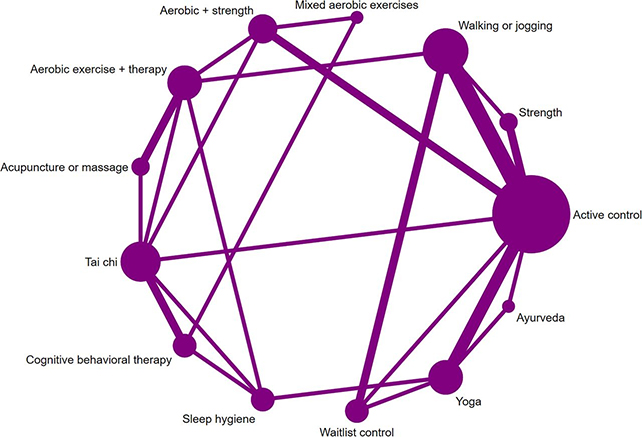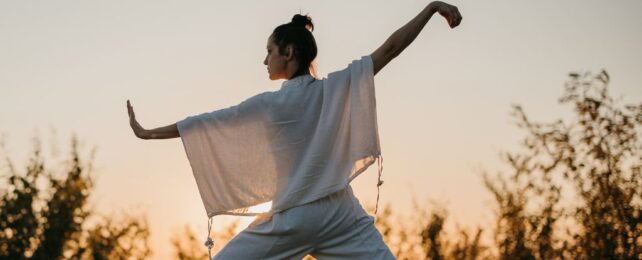Insomnia is the most common sleep disorder, with as many as a third of adults reporting problems with it. A new study suggests four low-effort, low-cost types of exercise that could help ensure a more restful night.
Data on 1,348 individuals from 22 separate randomized controlled trials were pulled together to look for associations between exercise types and sleep quality. All kinds of exercise were linked to less severe insomnia, but yoga, Tai Chi, walking, and jogging were found to be most helpful of all.
They're all types of activity that are fairly easy to do and don't have to cost you anything, and could be options for insomnia sufferers to explore alongside other medical advice – even if direct cause and effect can't be shown, according to the researchers from institutions across China and Bangladesh.
Related: Want to Live to 100? These Four Habits Might Help Get You There.
"Specifically, yoga may increase sleep duration, Tai Chi may enhance sleep architecture with lasting benefits, and walking or jogging may alleviate daytime dysfunction," write the researchers in their published paper.
"These insights could inform personalized treatment approaches and guide the development of future clinical guidelines."
The link between more exercise and better sleep is a well established one, and in that respect the study results aren't surprising. However, what's useful here is the detailed look at exercise types.

While the reviewed trials weren't fully consistent in terms of their methods or durations, the researchers were able to compare the effects of exercise on insomnia against approaches such as cognitive behavioral therapy (CBT), massage, acupuncture, improving sleep hygiene, and doing nothing.
Tai Chi, sometimes described as 'meditation in motion' and originating from China, showed more long-term benefits than other approaches. It was associated with improved sleep quality, being able to get to sleep quicker, and 50 minutes more sleep time on average.
The researchers also explored some of the reasons why these links might exist. Walking and jogging increases energy expenditure and boosts the production of the sleep hormone melatonin, for example, while yoga is known for relaxing the brain.
"Yoga has significantly affected subjective sleep quality, likely due to its focus on body awareness, controlled breathing and attentional training," write the researchers.
"Neurophysiological evidence indicates that yoga may enhance GABAergic activity and inhibit amygdala hyperactivation, thereby alleviating anxiety and depressive symptoms that often impair sleep initiation and perception."
Of course, part of the concern around insomnia is that it can lead to so many other health issues as well: people who struggle to get enough shut-eye during the night tend to be more likely to develop dementia, for example – though that could be due to medications or other factors, as well as the insomnia itself.
Being able to reduce the severity of insomnia could thus reduce the risk of other problems, as well as improving day-to-day quality of life – waking up more refreshed and not dozing off during afternoon meetings, for instance. The findings here could be useful for both insomnia sufferers and health professionals.
"The findings will offer valuable guidance for clinicians and help patients to choose the most appropriate exercise methods for managing their insomnia," write the researchers.
The research has been published in BMJ Evidence-Based Medicine.
